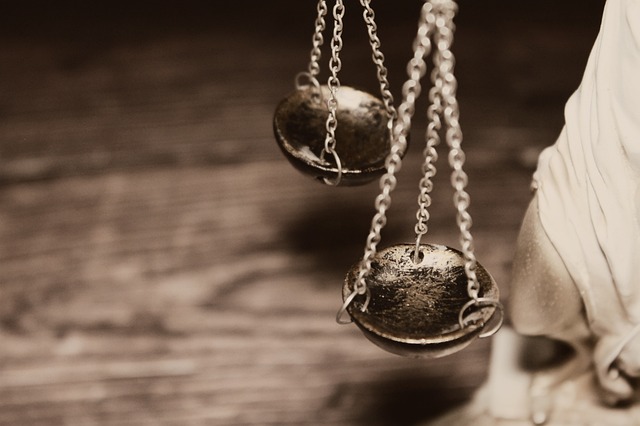Understanding grandparent rights under family law is crucial for maintaining healthy relationships with grandchildren. Grandparents face unique challenges such as limited access to legal representation and age-related barriers, making it difficult to protect their interests in custody, visitation, and guardianship cases. Family law for grandparents should provide accessible resources and ensure equal consideration of their voices. A strategic approach involving early participation and tailored visitation rights can help preserve intergenerational bonds. Post-divorce or post-custody arrangements require grandparent-focused provisions to maintain meaningful connections with grandchildren, alongside considering the child's best interests.
In many family law cases, grandparent interests often go overlooked. Understanding and protecting their rights is crucial for maintaining familial connections. This article delves into the intricate world of family law as it pertains to grandparents, exploring their roles and rights in various legal scenarios. We discuss common challenges, offer comprehensive strategies for protection, and navigate post-divorce or custody arrangements, providing valuable insights for both grandparents and legal professionals alike. Key terms: family law for grandparents.
- Understanding Grandparent Rights and Roles in Family Law
- Common Challenges Faced by Grandparents in Legal Proceedings
- Strategies for Protecting Grandparent Interests: A Comprehensive Approach
- Navigating Post-Divorce or Post-Custody Arrangements for Grandparents
Understanding Grandparent Rights and Roles in Family Law

In many family law cases, understanding grandparent rights and roles is crucial. Grandparents play a significant part in their grandchildren’s lives and may have legal interests at stake during custody or visitation disputes. Family law for grandparents often involves defining and protecting these rights, ensuring they maintain a healthy relationship with their grandchildren. This includes the right to reasonable visitation, which can be established through court orders or agreed-upon arrangements between parents and grandparents.
Recognizing grandparent roles is essential in family law cases as it fosters a comprehensive approach to child welfare. Grandparents can provide valuable support, guidance, and stability to their grandchildren. They may offer emotional connections, cultural transmission, and unique perspectives that contribute to the overall well-being of the child. Family law for grandparents seeks to balance these rights and roles while ensuring the best interests of both the grandchild and the family unit as a whole.
Common Challenges Faced by Grandparents in Legal Proceedings

Grandparents often face unique challenges when involved in family law cases, especially when their relationship with their grandchildren and other family members is strained or complex. Common issues include limited access to legal representation, a lack of understanding of the legal system, and difficulties in communicating effectively with lawyers due to age-related cognitive changes or language barriers. These factors can make it challenging for grandparents to protect their rights and interests, especially when navigating sensitive matters related to custody, visitation, and guardianship.
In many cases, grandparents may be overlooked or their opinions discounted during legal proceedings, which can lead to outcomes that aren’t in the best interest of the grandchild. Family law for grandparents should address these challenges by providing accessible resources, such as legal aid programs tailored to their needs, and ensuring that their voices are heard and considered equally alongside those of parents and other family members.
Strategies for Protecting Grandparent Interests: A Comprehensive Approach

Protecting grandparent interests in family law cases requires a comprehensive and strategic approach. One key strategy is to involve grandparents early in the legal process. This proactive step ensures their voices are heard and their concerns addressed, fostering a more balanced decision-making environment. Grandparents can appoint representatives or power of attorneys to act on their behalf, especially if they face health issues or reside far from legal proceedings.
Additionally, family law for grandparents should focus on establishing specific visitation rights tailored to each unique family dynamic. Courts often consider the child’s best interests, but including grandparent-specific factors can enrich the overall outcome. This may include regular phone calls, video chats, or in-person visits, ensuring a meaningful connection between grandparents and grandchildren. A well-crafted legal strategy should advocate for these arrangements to maintain strong intergenerational bonds.
Navigating Post-Divorce or Post-Custody Arrangements for Grandparents

Navigating post-divorce or post-custody arrangements can be a complex task for grandparents, especially as they strive to maintain a significant role in their grandchildren’s lives. Family law for grandparents plays a crucial role in ensuring their rights and interests are protected during these transitions. Courts often consider the best interests of the child when determining custody and visitation rights, but it’s essential to remember that grandparent-grandchild bonds can be equally important.
Grandparents may face challenges like limited access or the need to advocate for shared parenting plans. Familiarizing themselves with relevant family law provisions and seeking legal advice from specialists in grandparent rights can empower them to navigate these arrangements effectively. This proactive approach ensures that post-divorce or post-custody situations do not sever the precious connections between grandparents and grandchildren.














